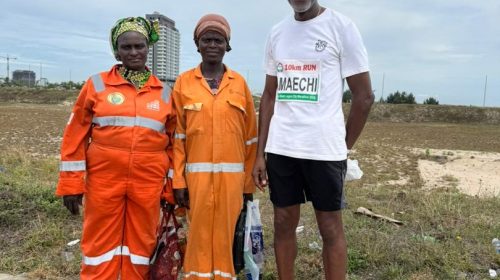World Bank Decries Africas Poverty Rate …Predicts 9 In 10 Extreme Poor People To Be In Africa By 2030

The World Bank has decried the rate of poverty in Africa predicting that by 2030, nearly 9 in 10 extremely poor people will be Africans, and half of the world’s poor will be living in fragile and conflict-affected settings.
President of the World Bank Group David Malpass made this revelation, on Thursday, in an opening remarks, at the 2019 Spring Meetings Press Conference, in Washington DC.
He predicted a further bleak future for sub-Saharan African region with a dismal below 1 percent per capita income growth “until at least 2021, which elevates the risk of a further concentration of extreme poverty on the continent. Growth in median countries will also be weak”.
The worried Malpass said the stark fact “is extremely troubling, because it jeopardizes the World Bank’s primary goal of ending extreme poverty by 2030”.
He noted that despite the global drop in, extreme poverty to 700 million at the last count from much higher levels in the 1990s and 2000s, “the number of people living in extreme poverty is on the rise in Sub-Saharan Africa”.
“This calls for urgent action—by countries themselves, and by the global community,” he further stated.
The World Bank boss, however cast a ray of hope thus: “fortunately, the World Bank Group is financially strong. And with the capital package – which was agreed to a year ago at the Spring Meetings, and which I was proud to support – the organization is becoming even more responsive, efficient, and effective”.
He explained that the World Bank Group plays an increasingly vital role in leading on global challenges that people face in developing countries stressing the “clear and important,” mission of the bank.
“The Bank’s role is particularly important in poorer countries, where the global economic slowdown that began last year hits people the hardest”.
The global economic growth accoreing to him “lost momentum throughout 2018, falling 2.7 percent in the fourth quarter, down from 3.3 percent in the Q1, based on World Bank calculations”.
“The deceleration was seen in both advanced and developing economies, and it coincided with three other warning signs: waning structural reforms in major economies; financial stress in some large emerging markets; and elevated policy uncertainty globally,” he said.







Leave a Reply